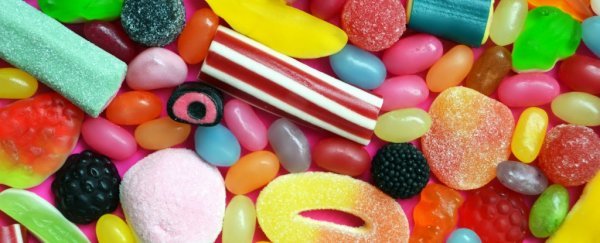Taste is the gate-keeper of your stomach and scientists have found that people with a reduced ability to taste choose more sugary beverages.
The results may explain why some adults want more sugar in their morning tea or coffee, possibly making them more likely to be overweight.
"We found that the more people lost sensitivity to sweetness, the more sugar they wanted in their foods," said senior researcher from Cornell University, Robin Dando.
Scientists and doctors have suspected for a long time that there was a connection between taste and obesity.
It has been reported that slim people are more sensitive to the taste of fat in foods and we keep finding that we have the ability to detect different tastes.
Despite our increasing knowledge about taste, researchers still weren't sure if less taste ability altered intake of sugar and other sweeter foods.
The new study tests this common assumption for the first time.
But how exactly do you dull taste?
In a double-blind study, 51 volunteers drank an herbal tea laced with low, medium, or high concentrations of an herb that is known to temporally block sweet receptors – Gymnema sylvestre.
The control group were also given the herbal tea but it contained no Gymnema sylvestre but was designed to taste just like the others.
Participants were asked to rinse their mouth with the tea solutions for 60 seconds and then spit it out. This dulled the sensors on their tongue for between 40 and 60 minutes – long enough for the study but not to ruin food for an entire day.
After swilling the herbal teas, the participants were given an unsweetened drink and two additional solutions: one solution of the same flavour labelled 'more sweet' (containing 250.0 grams of sucrose per litre), and one solution labelled 'less sweet', (containing 0.0 grams of sucrose per litre).
They were asked to continuously sip and adjust their beverage by adding as much or as little of each of the solutions, until the beverage reached their perfect level of sweetness.
Given free choice, something interesting happened.
Without realising it the participants had a preference of about eight to twelve percent sucrose in their drink – about the same as a soft drink or soda. Coincidence? The researchers think not.
Dando said, "Others have suggested that the overweight may have a reduction in their perceived intensity of taste. So, if an overweight or obese person has a diminished sense of taste, our research shows that they may begin to seek out more intense stimuli to attain a satisfactory level of reward".
As a rule of thumb, for a half litre soft drink the volunteers wanted one extra teaspoon of sugar to get it to their preferred taste.
One limitation of the study is that Gymnema sylvestre only knocks out sweet taste while sour, bitter, and salty tastes are minimally affected.
But the researchers think that this new study will highlight the importance of testing taste perception when considering how to treat obesity.
"The gustatory system – that is, the taste system we have – may serve as an important nexus in understanding the development of obesity. With this in mind, taste dysfunction should be considered as a factor" said Dando.
The study was published in Appetite.
